 Front page > Software tutorial > Don\'t Want to Wait for the iPhone 16? Here\'s How to Choose Between Apple\'s Current Lineup
Front page > Software tutorial > Don\'t Want to Wait for the iPhone 16? Here\'s How to Choose Between Apple\'s Current Lineup
Don\'t Want to Wait for the iPhone 16? Here\'s How to Choose Between Apple\'s Current Lineup
Want the Best Specifications? Go for the iPhone 15 Pro or Pro Max Want a Big-Screen iPhone? Go With These Models Best iPhone Camera for Enthusiasts or Professionals Want the Best Battery Life? Here Are Your Choices The Best Value iPhone: iPhone 15 The Best Budget iPhone: iPhone 13 While Apple fans and enthusiasts are waiting for the iPhone 16, what if you need a mid-year upgrade? Apple's current lineup—which includes several models from the iPhone SE (2022) to the latest and greatest iPhone 15 Pro Max—has something for everyone. Let's find out which model is best for you.
Want the Best Specifications? Go for the iPhone 15 Pro or Pro Max
If you want the absolute best specifications that Apple offers, go with the iPhone 15 Pro or the iPhone 15 Pro Max. Powered by the A17 Pro chip, these are not just the most powerful iPhones but the most powerful smartphones on the market. The Galaxy S24 Ultra featuring the Snapdragon 8 Gen 3 SoC comes close, but there's just no match for TSMC's 3nm fabrication technology in the A17 Pro (at least for now).
While the iPhone 15 Pro (with its 6.1-inch screen) offers top-tier specifications in a compact form factor, the iPhone 15 Pro Max provides a larger display (6.7-inch) for the best multimedia experience. Both models feature Super Retina XDR screens with Dynamic Island and ProMotion technology. Like the iPhone 14 Pro series, the 15 Pro also supports always-on display.
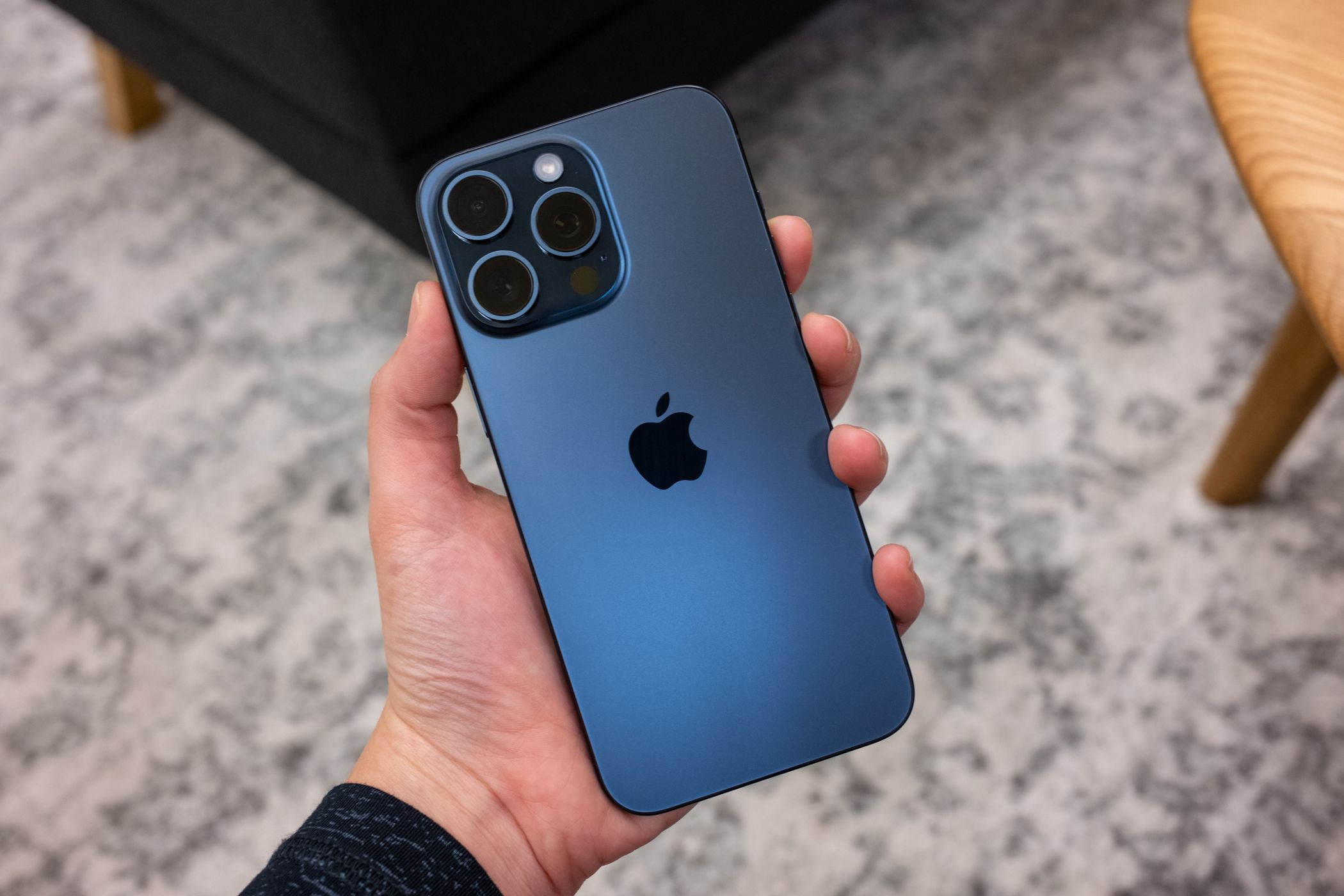
While both the Pro and Pro Max share base specifications, such as a USB-C port (up to 10Gbps), MagSafe wireless charging, sub-6GHz and mmWave 5G bands, Face ID, and a Titanium frame, it is the camera and battery that put the Max ahead. The Pro ships with a triple camera system that consists of a 48MP (f/1.78, 24mm) primary sensor, a 12MP (f/2.2, 13mm) ultrawide sensor, and a 12MP (f/2.8, 77mm) telephoto sensor for 3x optical zoom.
The iPhone 15 Pro Max borrows the primary and the ultrawide sensor, but it replaces the 3x zoom lens with a 12MP (f/2.8, 120mm) sensor that provides 5x optical zoom, which takes excellent portraits, by the way.
In terms of battery life, the iPhone 15 Pro provides up to 23 hours of video playback, whereas the iPhone 15 Pro Max, with a larger battery, provides up to 29 hours of video playback. Those are Apple's numbers, but they're also fairly typical of real-world usage. Both support the same charging speed as well, as stated on the official specifications page (up to 50% in around 30 minutes with Apple's 20W adapter).
Another thing worth noting is that the $999 iPhone 15 Pro ships with 128GB of storage. However, the $1199 iPhone 15 Pro Max features 256GB of base storage, which gives you a few more months of uninterrupted usage before you start seeing the annoying "iPhone Storage Full" and look for ways to free up your iPhone's storage.
Want a Big-Screen iPhone? Go With These Models
If you're in the market for a big-screen iPhone, the current lineup offers two options. The iPhone 15 Pro Max, which we've already discussed, has a 6.7-inch Super Retina XDR screen and supports ProMotion and True Tone technology. However, the use of top-tier hardware, other than the big screen, makes the iPhone 15 Pro Max an expensive model, setting you back $1199 for the baseline variant. If you're fine with the price tag, you can't go wrong with Apple's best iPhone.
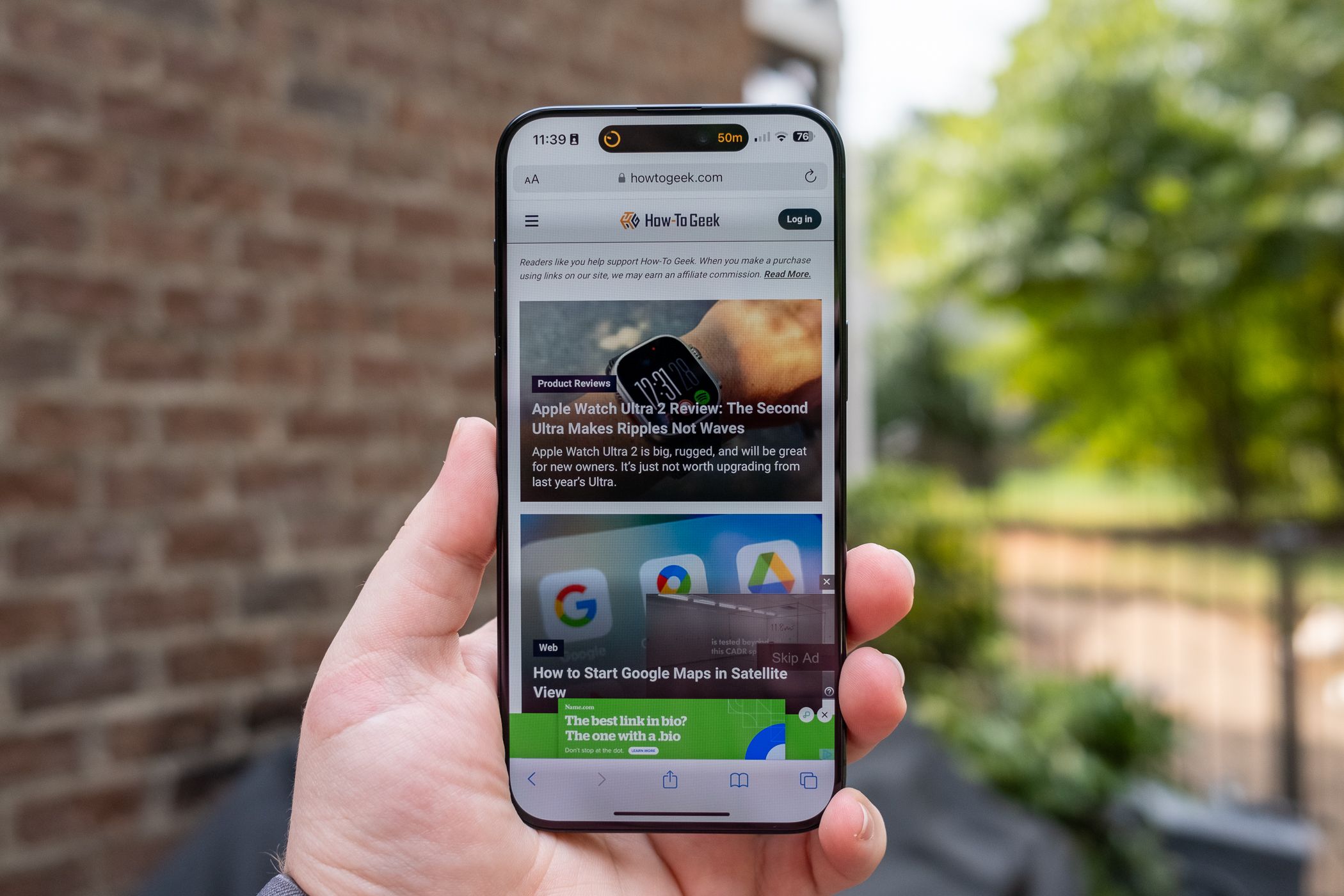
On the other hand, if you're okay with compromising on a few things, such as the triple camera setup, a ProMotion screen, and a faster USB-C port, the iPhone 15 Plus could be the ideal model for you. For $899, you get a 6.7-inch OLED screen with Dynamic Island and a resolution similar to that on the iPhone 15 Pro Max. The other downgrades include a slightly less powerful processor, the A16 Bionic chip, and less RAM, but you still get what you want: a big-screen iPhone.
To save more on these products, you might want to browse through carrier activation deals, which can easily save you $100 or more. For instance, the iPhone 15 Pro Max is available for $1099 at Best Buy if you activate it today with a new line.
Best iPhone Camera for Enthusiasts or Professionals
If you're a photography enthusiast who likes to experiment with different perspectives or a content creator who shoots for a living, the iPhone 15 Pro Max is the best camera iPhone money can buy. Without repeating the specifications we've mentioned above, the Pro Max carries the best camera array on an iPhone to date. Even though the phone has three physical sensors, it can mimic seven focal lengths.
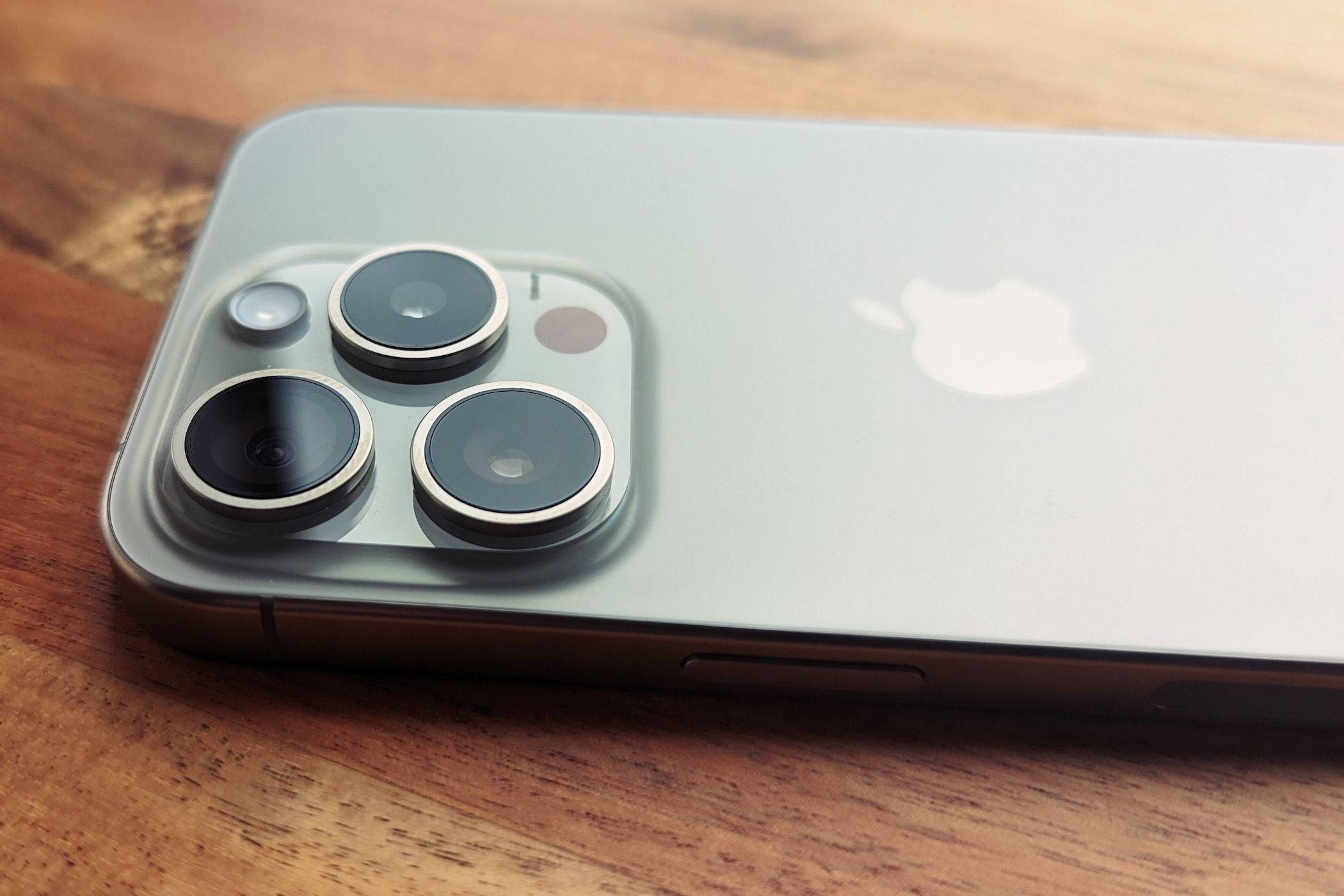
For instance, the primary camera rests at 24mm by default, but tapping the 1x icon reveals two more zoom levels: 28mm (1.2x) and 35mm (1.5x). Then, you get the 48m (2x) in-sensor crop mode that lets you get closer to the subject without losing much quality.
While the primary sensor manages all these focal lengths, the Camera app switches to the 12MP telephoto lens for zoomed-in shots (3x on the iPhone 15 Pro and 5x on the iPhone 15 Pro Max). Last but not least, the 12MP ultrawide is not only meant for clicking vast landscapes but also doubles as a macro shooter.
Regarding video, the Pro Max can shoot 4K videos at up to 60 fps, 4K Cinematic Videos at 60 fps, and ultra-stabilized Action Mode videos at up to 2.8K at 60 fps. While the regular iPhone 15 can also match these numbers, only the Pro Max can record ProRes videos at up to 4K at 60 fps with external recording.
Want the Best Battery Life? Here Are Your Choices
Apple's iPhones didn't always offer the long-lasting battery life they offer today. However, over the years, the company has changed that by equipping the handsets with larger batteries, increasing the chipset's efficiency, and optimizing the hardware and software. This is why iPhones can compete with Android phones with physically larger batteries and still come out on top.
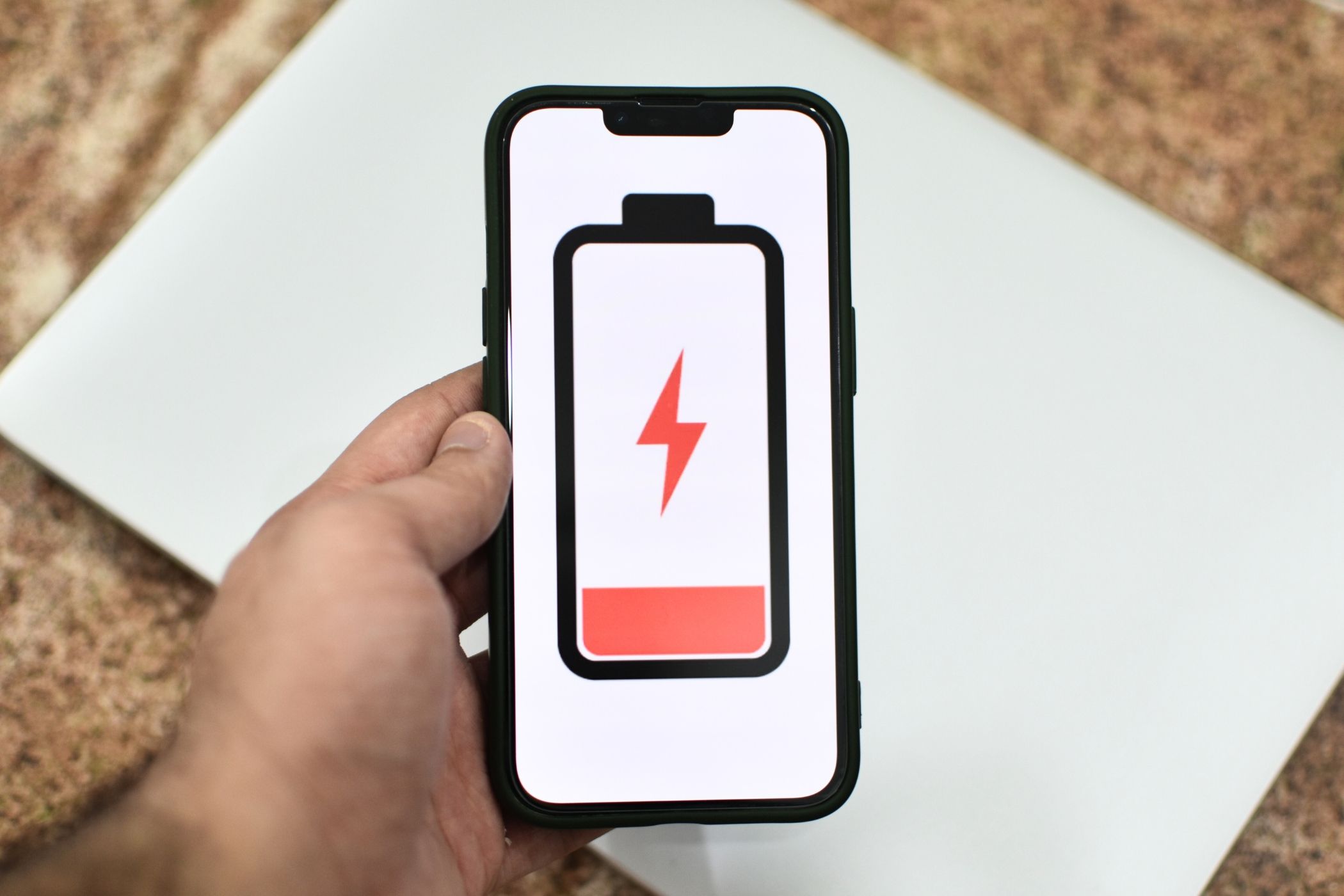
For the last two years, the Plus and the Pro Max variants have provided the best battery life. Hence, if you don't want to carry your charger with you at all times, consider going with the iPhone 15 Plus or the iPhone 15 Pro Max. Simply put, a larger iPhone means more space for a bigger battery.
Obviously, the options belong to two different categories of iPhones. While the iPhone 15 Plus is a stretched-out iPhone 15 with a bigger display and battery, the iPhone 15 Pro Max offers an additional camera, a ProMotion screen, and more processing power.
In such a scenario, go with the phone that fits your budget. The iPhone 15 Plus (128GB) starts from $899, while the iPhone 15 Pro Max (256GB) costs $1199. Either way, you can't go wrong with either of the models when it comes to battery life.
The Best Value iPhone: iPhone 15
The best-value iPhone, in my opinion, should strike a perfect balance between the latest features and price. Currently, only one model does that: the vanilla iPhone 15.
Released in September 2023, the iPhone 15 offers many features previously available on the Pro variants. For instance, you get the Dynamic Island. First introduced with the iPhone 14 Pro series, the Dynamic Island lets you interact with notifications intuitively. It expands the area surrounding the pill-shaped notch to showcase interactive alerts, such as those from the Maps, real-time updates on food deliveries, sports scores, and so on. Once you take the required action, the area retracts into the notch as if it came out of nowhere.
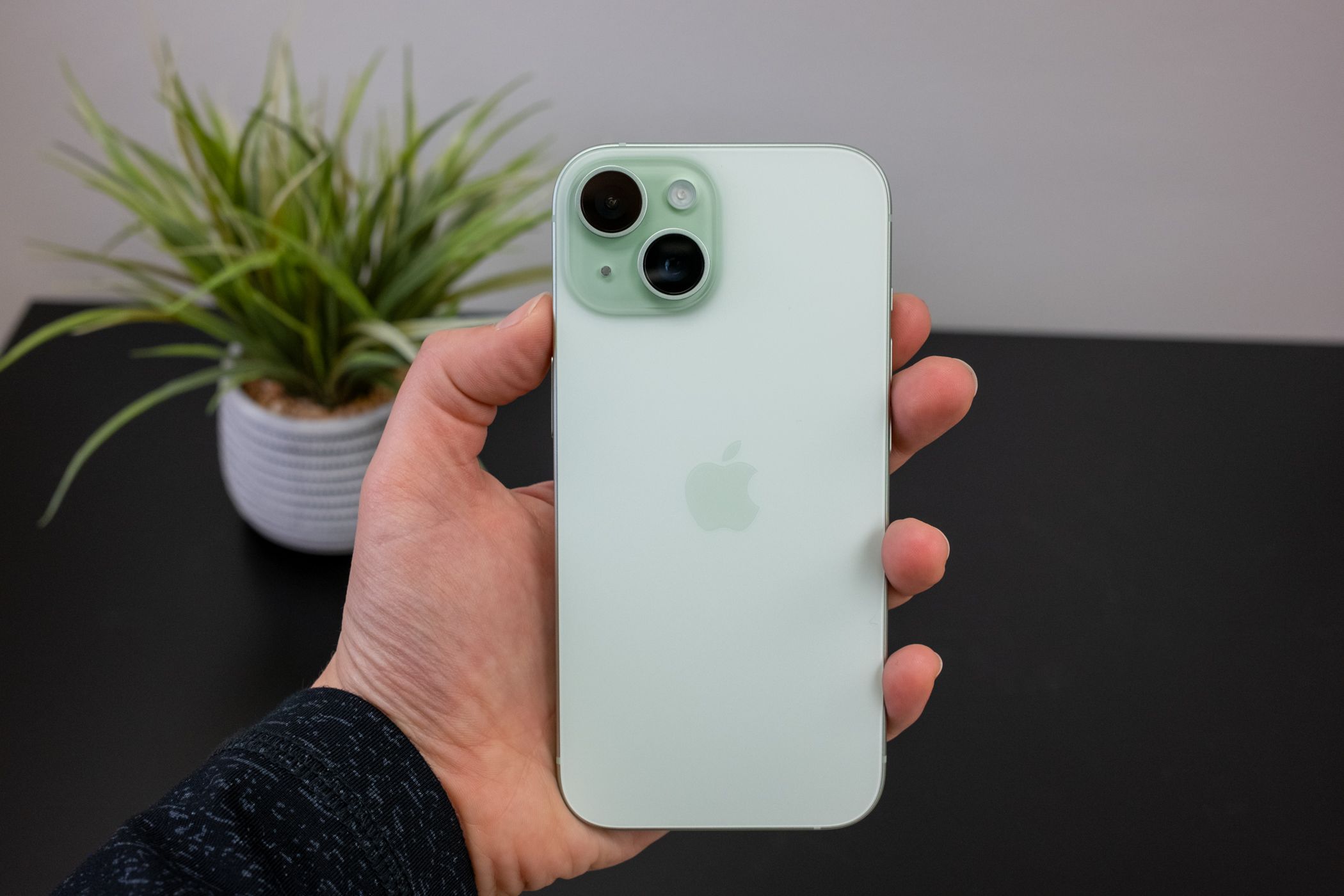
The main camera on the iPhone 15 is a 48MP (f/1.6) sensor, which the model borrows from the iPhone 14 Pro. Besides shooting crisper images with plenty of details, the camera also enables a 2x in-sensor crop, letting users get closer to the subject. The 12MP (f/2.4) ultrawide also does a decent job of capturing landscapes. Another major improvement on the smartphone is the inclusion of the USB-C port.
In addition to the Dynamic Island and the primary camera, the iPhone 15 houses Apple's A16 Bionic chipset, allowing the phone to provide fast performance while maintaining excellent efficiency levels. It is the same processor that powers the iPhone 14 Pro series. That said, it will also help the iPhone 15 to receive and run the latest software updates for another four to five years.
Yes, the iPhone 15 lacks a few features, such as a smoother screen, higher storage on the base variant, and a higher-resolution ultrawide, something I've discussed in my essential iPhone 16 upgrades article. But if there's a model in Apple's current lineup that provides the features of the previous Pro models at a more affordable price, it's the iPhone 15.
The Best Budget iPhone: iPhone 13
Back in January, I wrote an article about why the iPhone 13 is still a great purchase in 2024. The phone has a 6.1-inch OLED screen with excellent color reproduction, runs on the A15 Bionic processor, takes excellent HDR images with its dual 12MP cameras, and lasts an entire day of moderate usage.
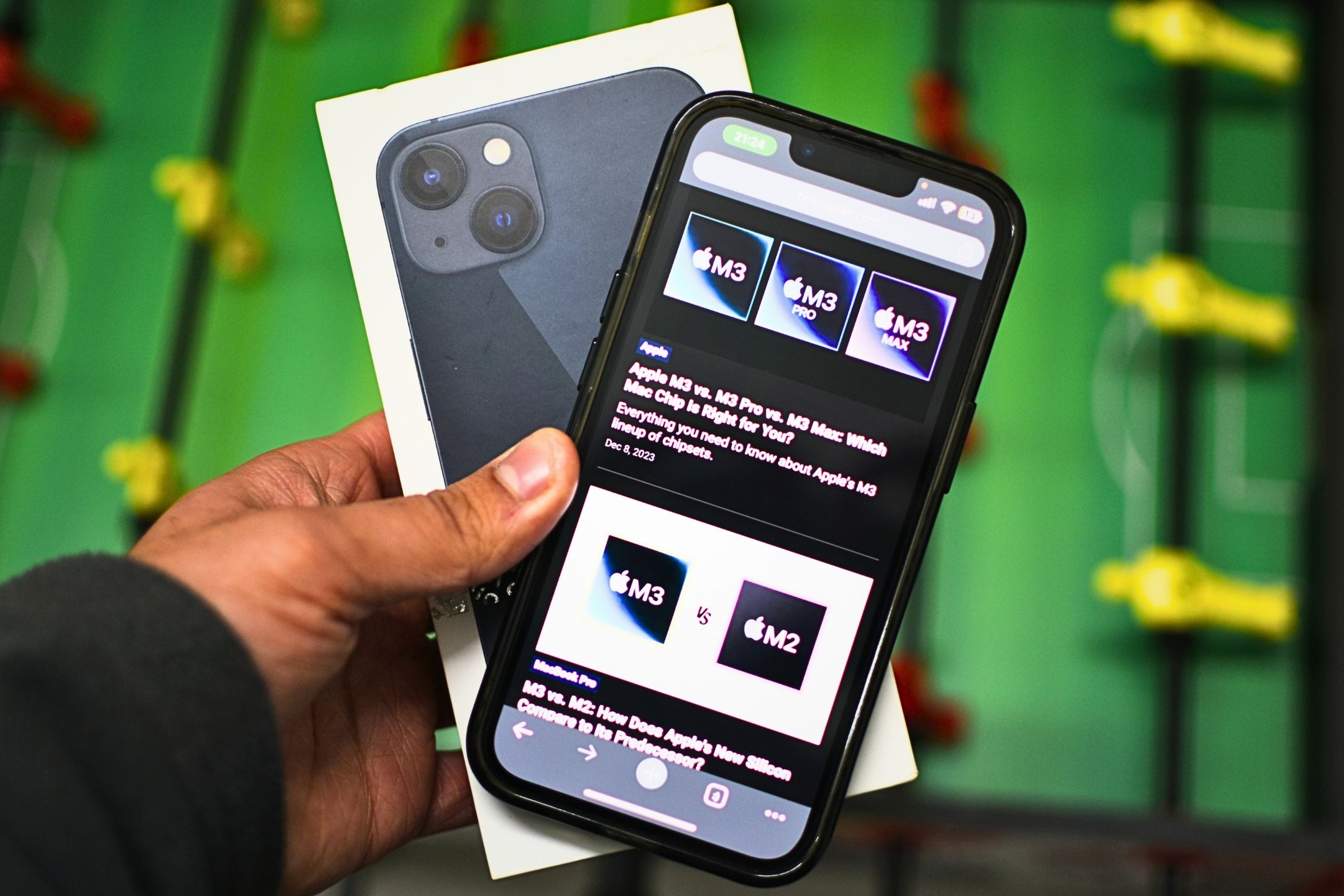
Besides, the iPhone 13 also carries a modern aesthetic. It has the same notch as the newer iPhone 14 and the diagonal rear camera alignment as the iPhone 15. Speaking of the iPhone 14, one might pick it over the iPhone 13 in 2024, but I think it doesn't offer any significant upgrades. For now, Apple retails the iPhone 13 (128GB) variant for $599. The phone is available in six color options, including blue, pink, black, white, green, and red.
For those who really like their iPhone 8, the iPhone SE (2022) is an even cheaper option. It is a simple, no-fancy-features-included smartphone that gets the job done. While the baseline iPhone SE (2022), with 64GB of storage, is available for $429, I strongly recommend the 128GB version that costs $479.
Looking for a tablet instead? Apple recently upgraded its iPad Pro lineup with a Tandem OLED display and a new M4 Silicon chip. While the display technology can make its way to future Apple products, the M4 chip is expected to arrive on MacBook Pro variants later in 2024.
-
 How to Fix Windows Update Error 0x80070658: Stepwise GuideTo ensure optimal computer performance, timely installation of the latest Windows updates is crucial. Users may encounter Windows update error 0x80240...Software tutorial Published on 2024-11-05
How to Fix Windows Update Error 0x80070658: Stepwise GuideTo ensure optimal computer performance, timely installation of the latest Windows updates is crucial. Users may encounter Windows update error 0x80240...Software tutorial Published on 2024-11-05 -
 How to Use AI to Analyze Excel DataMicrosoft’s Copilot AI has been rolled out across its suite of major applications, including the long-running spreadsheet platform that is Excel. Now,...Software tutorial Published on 2024-11-05
How to Use AI to Analyze Excel DataMicrosoft’s Copilot AI has been rolled out across its suite of major applications, including the long-running spreadsheet platform that is Excel. Now,...Software tutorial Published on 2024-11-05 -
 6 Ways to Fix AirTags Not Showing Up in Find MyFrom tracking your car keys to keeping a check on your pets, the use case of Apple AirTags is multifarious. These AirTags can be traced through the Fi...Software tutorial Published on 2024-11-05
6 Ways to Fix AirTags Not Showing Up in Find MyFrom tracking your car keys to keeping a check on your pets, the use case of Apple AirTags is multifarious. These AirTags can be traced through the Fi...Software tutorial Published on 2024-11-05 -
 Windows Update Error 0x800f0985: How to Fix It on Windows 11Windows updates are necessary, but there may be unavoidable problems encountered during the update process sometimes, like Windows update error 0x800f...Software tutorial Published on 2024-11-05
Windows Update Error 0x800f0985: How to Fix It on Windows 11Windows updates are necessary, but there may be unavoidable problems encountered during the update process sometimes, like Windows update error 0x800f...Software tutorial Published on 2024-11-05 -
 Windows 11 24H2 ISO Official Version –Download & Offline InstallSpeaking of the Windows 11 24H2 release date, Microsoft has claimed that it is available beginning with October 1, 2024. So how can you download Windo...Software tutorial Published on 2024-11-05
Windows 11 24H2 ISO Official Version –Download & Offline InstallSpeaking of the Windows 11 24H2 release date, Microsoft has claimed that it is available beginning with October 1, 2024. So how can you download Windo...Software tutorial Published on 2024-11-05 -
 How to Enable or Disable Safari Pop-up Blocker on MacBlock or Unblock Pop-Ups in Safari for One Website Step 1: Open Safari on your Mac and navigate to a website. Next, select Safari → Setting from the m...Software tutorial Published on 2024-11-05
How to Enable or Disable Safari Pop-up Blocker on MacBlock or Unblock Pop-Ups in Safari for One Website Step 1: Open Safari on your Mac and navigate to a website. Next, select Safari → Setting from the m...Software tutorial Published on 2024-11-05 -
 3 Ways to Remove Exclamation Mark From iPhone MessagesFix 2: Turn iMessage off and On By turning the iMessage toggle off and on, you’re syncing and downloading your chats all over again. This helps ...Software tutorial Published on 2024-11-05
3 Ways to Remove Exclamation Mark From iPhone MessagesFix 2: Turn iMessage off and On By turning the iMessage toggle off and on, you’re syncing and downloading your chats all over again. This helps ...Software tutorial Published on 2024-11-05 -
 How to Fix Critical Steam Component (steamwebhelper) Not Responding on Windows 11Preliminary Fixes Restart Steam with administrator privileges: Steamwebhelper.exe manages all the web features inside the Steam client. Before trying ...Software tutorial Published on 2024-11-05
How to Fix Critical Steam Component (steamwebhelper) Not Responding on Windows 11Preliminary Fixes Restart Steam with administrator privileges: Steamwebhelper.exe manages all the web features inside the Steam client. Before trying ...Software tutorial Published on 2024-11-05 -
 How to Fix Windows Setup Aka.ms/WindowsSysReq Error: GuideWhen installing or upgrading to Windows 11, you may encounter various errors, including the Windows setup Aka.ms/WindowsSysReq error. This error occur...Software tutorial Published on 2024-11-05
How to Fix Windows Setup Aka.ms/WindowsSysReq Error: GuideWhen installing or upgrading to Windows 11, you may encounter various errors, including the Windows setup Aka.ms/WindowsSysReq error. This error occur...Software tutorial Published on 2024-11-05 -
 3 Ways to Fix Screensaver Not Working on MacBasic Troubleshooting Change the screensaver – Sometimes, your currently selected Screensaver might need fixing. So, change the current screensaver a...Software tutorial Published on 2024-11-05
3 Ways to Fix Screensaver Not Working on MacBasic Troubleshooting Change the screensaver – Sometimes, your currently selected Screensaver might need fixing. So, change the current screensaver a...Software tutorial Published on 2024-11-05 -
 I Change My Phone Wallpaper Almost Every Day and I Can\'t StopLooking at the same phone day in and day out can get a little boring. It turns out there's a very simple way to inject some novelty into your mos...Software tutorial Published on 2024-11-05
I Change My Phone Wallpaper Almost Every Day and I Can\'t StopLooking at the same phone day in and day out can get a little boring. It turns out there's a very simple way to inject some novelty into your mos...Software tutorial Published on 2024-11-05 -
 Nomad Launches a Rechargeable Credit Card-Sized TrackerWallet trackers like the Chipolo CARD tend to use a disposable design—they don't have replaceable or rechargeable batteries. Now, Nomad is enteri...Software tutorial Published on 2024-11-05
Nomad Launches a Rechargeable Credit Card-Sized TrackerWallet trackers like the Chipolo CARD tend to use a disposable design—they don't have replaceable or rechargeable batteries. Now, Nomad is enteri...Software tutorial Published on 2024-11-05 -
 How (and When) to Use the Ping Command in WindowsThe ping command is commonly used to troubleshoot network problems and assess the health of a network connection. Learn how the ping command works, h...Software tutorial Published on 2024-11-05
How (and When) to Use the Ping Command in WindowsThe ping command is commonly used to troubleshoot network problems and assess the health of a network connection. Learn how the ping command works, h...Software tutorial Published on 2024-11-05 -
 7 Fixes for an iPhone Not Receiving TextsThere are many reasons why your iPhone might not be receiving text messages—from incorrect settings to poor internet connection. So, try the troubles...Software tutorial Published on 2024-11-05
7 Fixes for an iPhone Not Receiving TextsThere are many reasons why your iPhone might not be receiving text messages—from incorrect settings to poor internet connection. So, try the troubles...Software tutorial Published on 2024-11-05 -
 How to Fix 0xA00F425C Camera Error? Here’re SolutionsThe camera app is one of the essential functions of the computer. It is very powerful and can facilitate your work and communication. Have you ever en...Software tutorial Published on 2024-11-05
How to Fix 0xA00F425C Camera Error? Here’re SolutionsThe camera app is one of the essential functions of the computer. It is very powerful and can facilitate your work and communication. Have you ever en...Software tutorial Published on 2024-11-05
Study Chinese
- 1 How do you say "walk" in Chinese? 走路 Chinese pronunciation, 走路 Chinese learning
- 2 How do you say "take a plane" in Chinese? 坐飞机 Chinese pronunciation, 坐飞机 Chinese learning
- 3 How do you say "take a train" in Chinese? 坐火车 Chinese pronunciation, 坐火车 Chinese learning
- 4 How do you say "take a bus" in Chinese? 坐车 Chinese pronunciation, 坐车 Chinese learning
- 5 How to say drive in Chinese? 开车 Chinese pronunciation, 开车 Chinese learning
- 6 How do you say swimming in Chinese? 游泳 Chinese pronunciation, 游泳 Chinese learning
- 7 How do you say ride a bicycle in Chinese? 骑自行车 Chinese pronunciation, 骑自行车 Chinese learning
- 8 How do you say hello in Chinese? 你好Chinese pronunciation, 你好Chinese learning
- 9 How do you say thank you in Chinese? 谢谢Chinese pronunciation, 谢谢Chinese learning
- 10 How to say goodbye in Chinese? 再见Chinese pronunciation, 再见Chinese learning
























